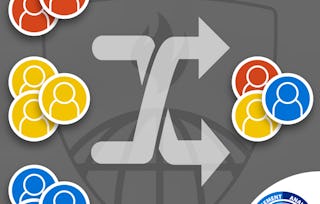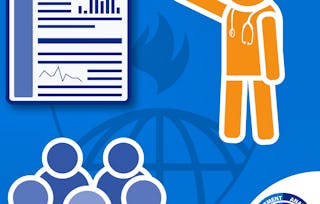Clinical trials are experiments designed to evaluate new interventions to prevent or treat disease in humans. The interventions evaluated can be drugs, devices (e.g., hearing aid), surgeries, behavioral interventions (e.g., smoking cessation program), community health programs (e.g. cancer screening programs) or health delivery systems (e.g., special care units for hospital admissions). We consider clinical trials experiments because the investigators rather than the patients or their doctors select the treatment the patients receive. Results from randomized clinical trials are usually considered the highest level of evidence for determining whether a treatment is effective because trials incorporates features to ensure that evaluation of the benefits and risks of treatments are objective and unbiased. The FDA requires that drugs or biologics (e.g., vaccines) are shown to be effective in clinical trials before they can be sold in the US.

Design and Interpretation of Clinical Trials

Design and Interpretation of Clinical Trials


Instructors: Janet Holbrook, PhD, MPH
Access provided by Allegiant Giving Corporation
157,182 already enrolled
4,345 reviews
Skills you'll gain
Details to know

Add to your LinkedIn profile
6 assignments
See how employees at top companies are mastering in-demand skills

There are 6 modules in this course
This week, we explore different types of trial designs, including parallel, crossover, group allocation, factorial, large simple, equivalency, non-inferiority, and adaptive designs.
What's included
5 videos3 readings1 assignment2 discussion prompts
This week we discuss two key design features of randomized clinical trials used to protect against bias, randomization and masking.
What's included
3 videos1 reading1 assignment3 discussion prompts
This week focuses on a key design issue - selecting the primary outcome. We will also cover the gold standard for analysis of clinical trials, which is including all the participants in the analysis regardless of their actual treatment.
What's included
4 videos1 reading1 assignment2 discussion prompts
This week focuses on a key issue in the field of clinical trials, the ethics of experimentation in humans.
What's included
2 videos6 readings1 assignment2 discussion prompts
This week, we focus on reporting results of clinical trials in publications. We cover the Consolidated Standards of Reporting Trials (CONSORT) guidelines.
What's included
3 videos3 readings1 assignment2 discussion prompts
This week, we focus on whether RCTs are still the gold standard for evaluating evidence.
What's included
3 videos2 readings1 assignment2 discussion prompts
Instructors


Offered by
Why people choose Coursera for their career

Felipe M.

Jennifer J.

Larry W.

Chaitanya A.
Learner reviews
- 5 stars
76.31%
- 4 stars
20.59%
- 3 stars
2.55%
- 2 stars
0.34%
- 1 star
0.18%
Showing 3 of 4345
Reviewed on Nov 25, 2020
a very good introduction to clinical trials, it would be great if there is a second part of this course covering more topics in trial design and also the statistics in clinical trials.
Reviewed on Sep 18, 2019
This course would be most useful to the participant if pursued within a short time-frame, of maximum of 6 weeks. Both lecturers were clear and good communicators. I would take more of their classes.
Reviewed on May 30, 2018
I was able to learn a lot from this course. The lectures and the sequence of the presentations were logical and clear to understand. I will definitely recommend this course for my colleagues.
Explore more from Health

Johns Hopkins University

Johns Hopkins University

Johns Hopkins University


